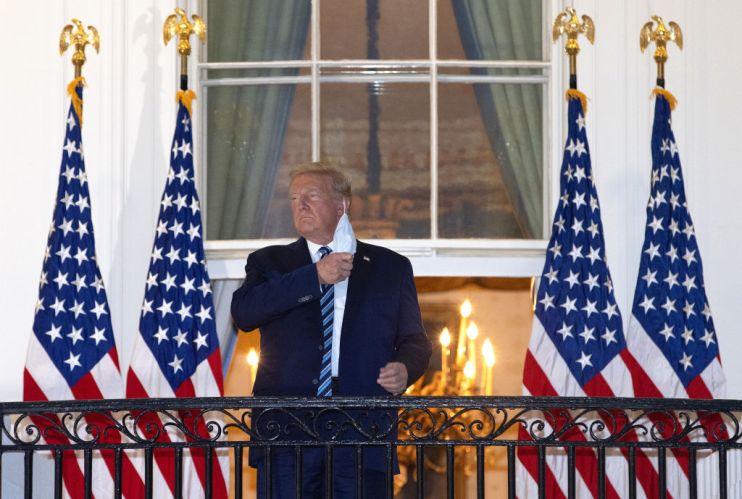Forget the conventional wisdom, all investors want from the US election is a return to stability

Even in the post-superpower era, US elections are the most-followed global political event for market participants.
In this extraordinary year, fears of delays and legal challenges have driven volatility, while the ghosts of 2016’s polling failure undermine confidence in forecasting methods. Conspiracy theories abound: Trump’s diagnosis is a hoax, designed to boost sympathy. Or conversely, a staged “speedy recovery” would serve to justify pandemic scepticism.
The fact that such theories have entered the mainstream dialogue for sophisticated investors highlights how far trust has plummeted —heightening the risk of a market surprise.
US elections are unlikely to resolve this political uncertainty, but they can help clarify the direction of travel.
The conventional wisdom surrounding US elections and financial market impact is closer to superstition than fact. Republican victories are good for the S&P and keep the US deficit low, while Democrats are the party of tax and spend — the thinking goes.
These tired stereotypes largely reflect the Reagan-era political and generational biases of Wall Street itself. Now, the most important policies for investors are not set by the White House, but by the US Federal Reserve. And in an environment where political ideology has become blurred and the terms “left” and “right” mean less, the most important policy driver is public opinion — the Vox Populi — not party affiliation.
Perhaps the most important variable in the final weeks of the race is also the least “knowable”: President Trump’s medical condition and his capacity to continue campaigning. Even so, a postponement of the election is highly unlikely, given that early voting has been taking place for weeks, and would also require agreement by a divided Congress.
So the US election is likely to proceed on 3 November with the current ticket, but with more attention than usual to the VP candidates, making tonight’s debate between Kamala Harris and Mike Pence considerably more consequential. The rate of “October surprises” has been fast and furious, with room for more to come.
Although the risk of an “election malfunction” is higher than ever, the peculiarities of the US electoral college and timeline for reporting means that a result on election night is the still most likely outcome.
President Trump retains a path to victory, especially if he can win electoral college vote-heavy Florida and Ohio. However the momentum is not going in Trump’s direction — between Joe Biden’s sizeable post-debate polling bounce and the anaemic state of the US recovery.
More plausible — and, indeed, what prediction markets are currently anticipating, is a Biden victory. But in order to avoid a disputed outcome, Biden cannot simply win — the margin of victory would need to be sizeable, and consolidated fairly early in the process. The worst outcome from a market perspective would be a close victory by either candidate, which would pave the way for delays and a possible Supreme Court challenge — a court that is currently split 4-4 as the confirmation of Amy Coney Barrett has yet to take place.
With expectations for a legitimate US election and peaceful transfer of power so low, any clear result is likely to trigger a relief rally in markets. Despite financial markets’ historic suspicion of Democratic presidents, in the new normal, a Biden victory is less likely to cause a sell-off, mainly because it is what investors are expecting, but also because of a shift in perception. The “plain vanilla” Democrat Biden is perceived to be is less likely to inflame global trade tensions and can be expected to return the White House to a more predictable policy trajectory.
The bigger mark of a change in trend from Wall Street would come in the event of a “clean sweep” victory for Democrats in the White House and control over Congress. Historically, this outcome would trigger spending fears, but in the current context, a congressional majority would mean that pandemic-fighting legislation is more likely to pass, reducing the risk of future market meltdowns.
Main image credit: Getty